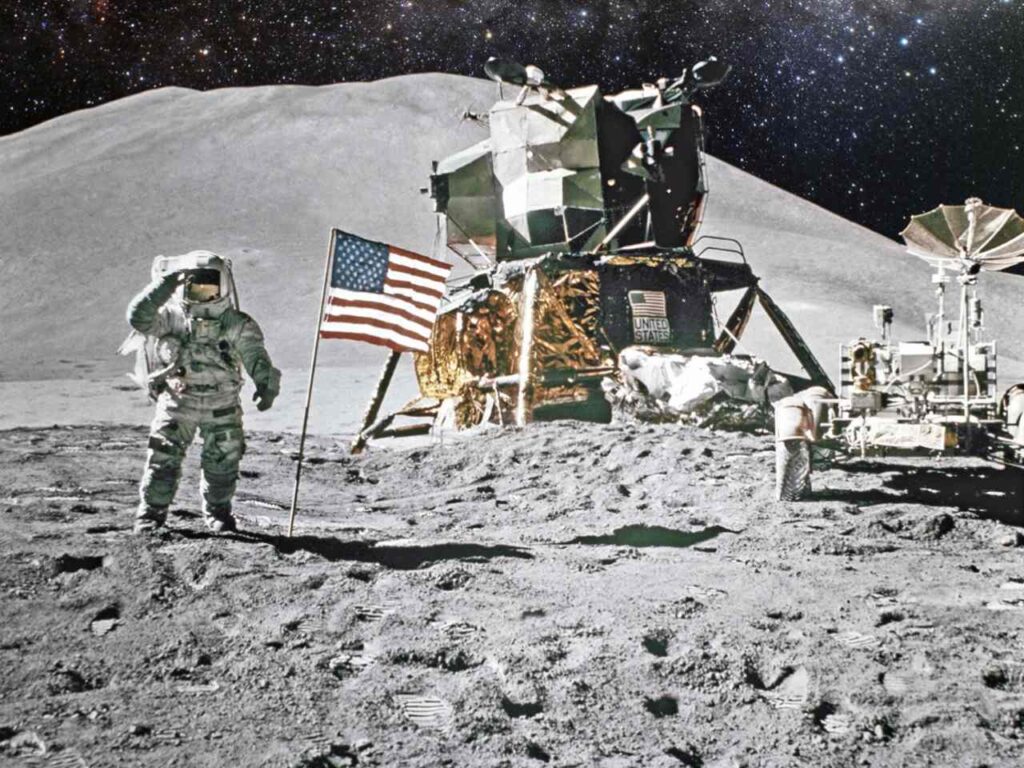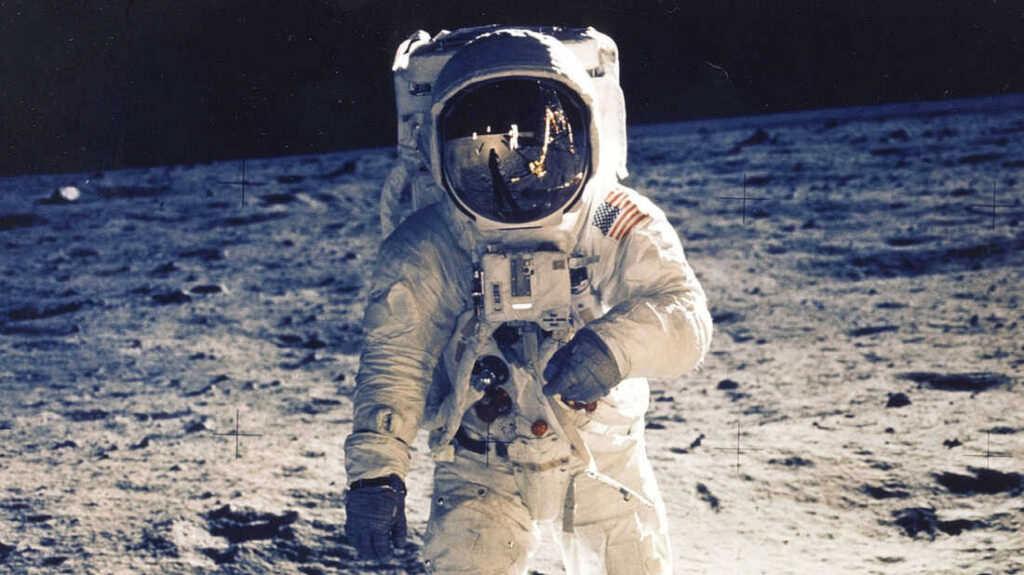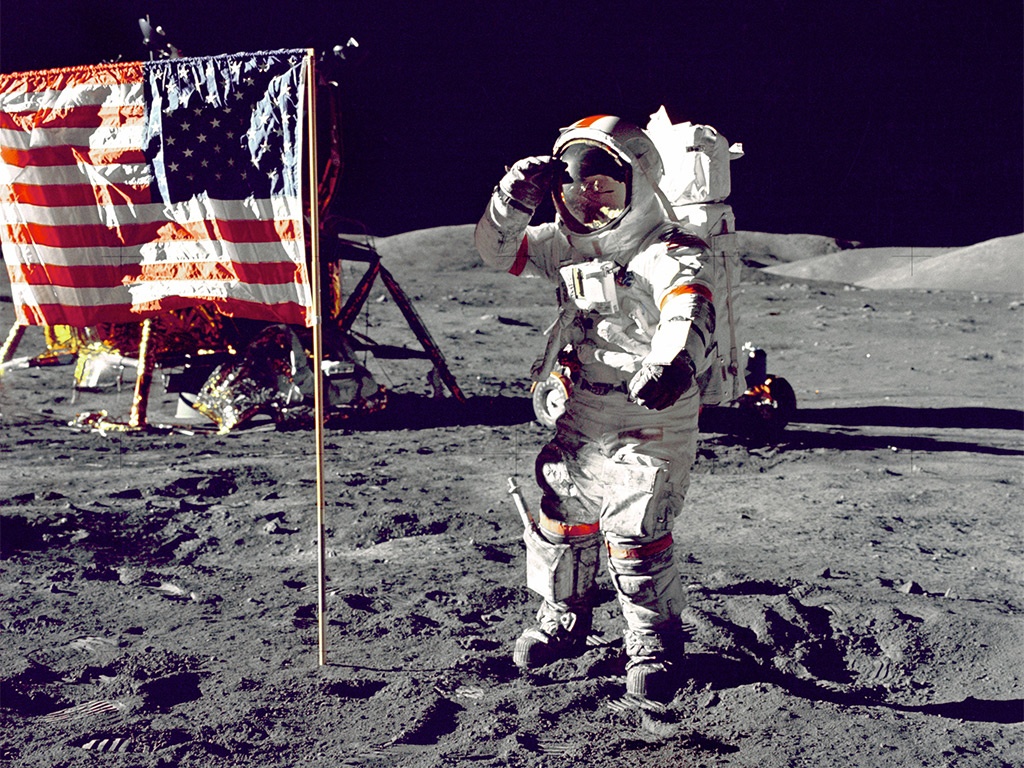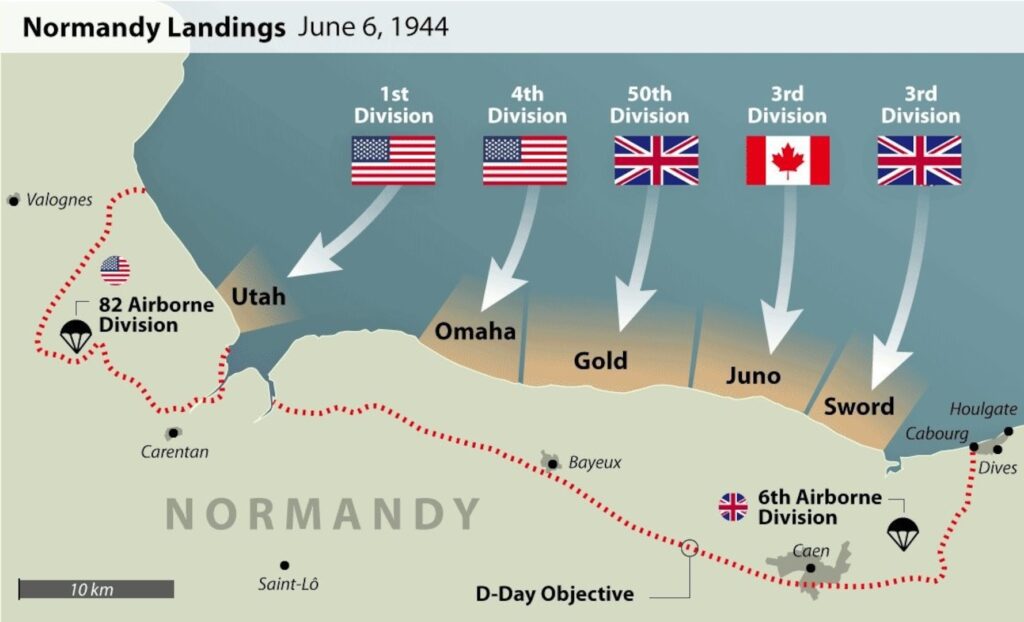Fifty-four years ago, on July 20, 1969, two brave astronauts, Neil Armstrong and Buzz Aldrin, made history by becoming the first humans to set foot on the lunar surface. Their monumental achievement during the Apollo 11 mission remains a defining moment in human history, symbolizing the unyielding spirit of exploration and the pursuit of the unknown.
The moon landing was a triumph of science, technology, and human ingenuity. The Apollo 11 mission required years of meticulous planning, rigorous testing, and the collaborative efforts of thousands of scientists, engineers, and astronauts. It exemplified the relentless determination of humanity to push the boundaries of what seemed impossible and dared to reach for the stars.

Neil Armstrong’s famous words as he stepped onto the moon, “That’s one small step for man, one giant leap for mankind,” echoed across the globe, resonating with people from all walks of life. The moon landing inspired generations, sparking interest in space exploration, science, and innovation. It demonstrated that with courage, dedication, and a united vision, we can achieve greatness beyond our wildest dreams.
Beyond the scientific significance, the moon landing brought people together like never before. Millions around the world watched in awe as Armstrong and Aldrin planted the American flag on the moon’s surface, symbolizing the collective human spirit of unity and peace.

The legacy of Apollo 11 extends far beyond its historical importance. The technologies developed during the space race, such as microchips, satellite communication, and advanced materials, have transformed our daily lives and shaped modern society. It serves as a reminder of what we can achieve when we embrace curiosity, invest in education and research, and prioritize collaboration over competition.
However, as we commemorate this extraordinary feat, we must not forget the sacrifices and risks undertaken by those involved in the space program. Tragically, astronauts like Michael Collins, who piloted the command module during Apollo 11, never got the chance to walk on the moon but played a vital role in ensuring the mission’s success.
As we look back on this historic event, let us rekindle the sense of wonder and curiosity that drove humanity to reach for the stars. Let us use the moon landing’s spirit of unity and exploration to tackle the challenges that lie ahead, from addressing climate change to venturing into even deeper space exploration.

The 54th anniversary of the moon landing serves as a powerful reminder that there are no limits to human potential when we dare to dream, explore, and work together for a common purpose. Let us celebrate this incredible achievement and continue to honor the legacy of those who made it possible. The moon landing was not just a victory for the United States but a triumph for all of humanity—a giant leap that will forever inspire generations to come.













